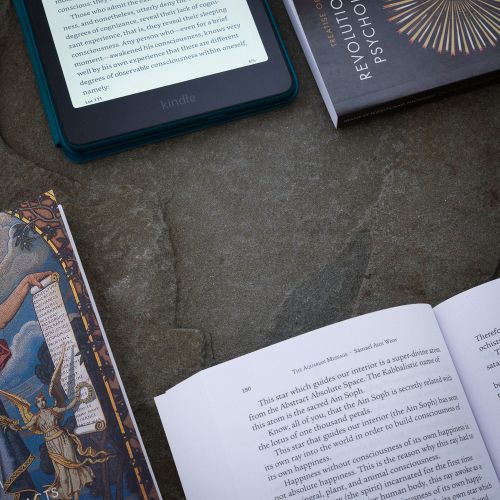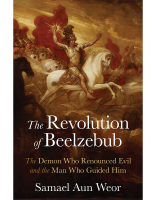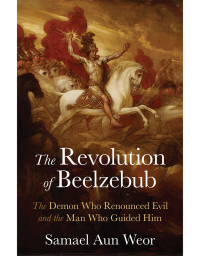Who is that young man with a greyish tunic, black and profound eyes, hawk-nose, tall body, and tousled mane?
Who is that joyful young man who laughs happily while in social gatherings with friends, who is broad-minded and blissful in an orgy?
Ah! He is Beelzebub, the king of parties, the simpatico friend of taverns, the joyful friend of orgies, the romantic, handsome, broad-minded man from ancient Arcadia...
I have clairvoyantly penetrated into the epoch of Saturn... I do not see anything vague or vaporous here, as Besant, Leadbeater, Heindel, and Steiner asserted. What of their powers? What of their knowledge? Why did they speak to me of vague things when everything that I see here is concrete and exact?
These human beings of the epoch of Saturn were Human... true Humans, because they had a Being, and they knew that this Being was within them...
Humanities are always analogous, and these human beings of the epoch of Saturn were like the present human beings with a similar environment.
When speaking of humanity, what may come into our minds is business, taverns, brothels, orgies, beautiful, frivolous maidens and handsome suitors, abducted princesses and ancient castles, neighboring sweethearts and nighthawk poets, an elder who passes by and a child who cries, a mother who sings a lullaby of hope, or a monk who murmurs a prayer... To that end, the whole gamut of qualities, the various and diverse defects, are what constitute the human values...
Humanity is a womb where angels and demons are gestated. Therefore, the only outcome of humanity is nothing else but angels and demons...
There is no danger when the divine Monads1 animate the three inferior kingdoms [mineral, plant, and animal]. Danger exists when they arrive at the human kingdom, because from this human state the only outcome is an angel or a demon...
Beelzebub was a great rebel who shook his head and his tousled mane amidst the cups and delights of Arcadia... He had longings for wisdom, but his rebel eagle wings did not fit among the parochial rabble. His tremendous and fierce word, with its magnificent and luminous proverbs, disturbed the imbeciles and unmasked the traitors...
The fire of eternity burned within his soul, and a scream of rebellion shook his titanic, innermost parts; yet, he was enjoying all kinds of commodities and abode in a comfortable and luxurious house of Arcadia, which was his rebel eagle’s nest...
All was of a mental matter; all of the human beings used astral bodies2... They ate, dressed, drank and enjoyed themselves like in this present time, because the astral body is an organism almost as dense as the physical. Thus, it was analogously constituted as the physical body...
Certainly, these human beings of Arcadia remembered ancient cataclysms and beautiful millenarian traditions from pre-Saturnian Epochs... but within the complete apogee of the human state, life was similar to that of the present time...
Small, festive parties...
of happy comrades...
pale fires...
and liquors of mandrake.
Nights of revelry and orgy...
nights of carnival...
Romances of love and poetry...
that are better not to remember...
Chaste brunette maidens
who fall upon the arms...
and who are weightless as the wind
with those raiments of satin...







